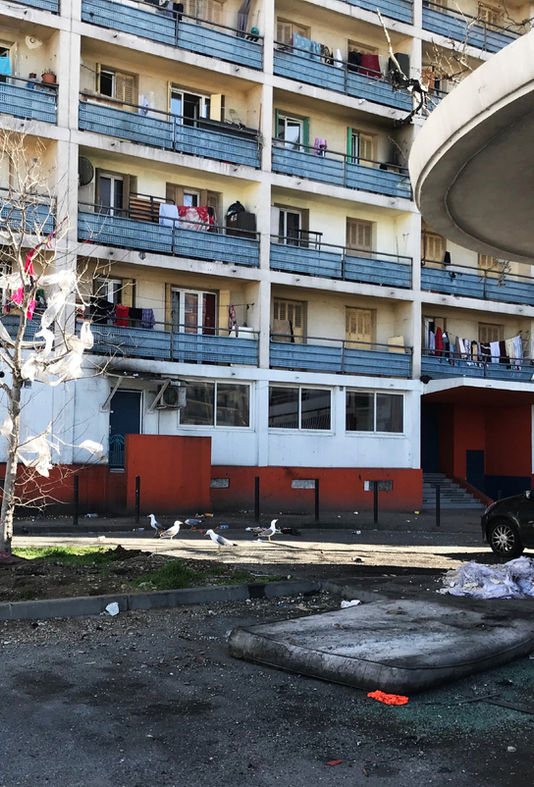Ecology of Deconstruction
Marseille, France. 2019
Chiara Cirrone
Alexis Schulman
Current situation
This project stems from the idea that socioeconomic segregation is deeply rooted in the way our cities are physically produced.
With this project we intend to imagine an alternative urban economy whose objective is to preserve and create jobs for low-skilled workers within the city of Marseille.
In recent decades, the renewal of the "European city" has been accompanied by the rapid growth of services and the knowledge economy, pushing productive areas to the outskirts of the city or to low-wage countries. In Marseille this trend materializes under the name of 'Euroméditerranée', an urban renewal project that is allowing the transition to the so-called post-industrial economy, while ignoring the real conditions of the local labor market.
conceptual change
This new wave of urbanization can also be read in terms of material flows. The project is conceptually based on the recognition of the enormous potential of the 300,000 m3 of demolished material produced by the 'Euroméditerranée' urban scheme, if considered from a different perspective. In fact, we believe that the built environment is both a finite object and a natural resource.in fine.
Today, the extraction and processing of the raw material requires three times more energy than its transformation into a final product. On the contrary, this second phase requires three times more labor than the first.
Following this logic, it seeks to take advantage of the energy embodied in this "waste" to initiate a socially and environmentally sustainable urban economy that guarantees new jobs and reduces CO2 emissions.
The project
The program for Felix Pyat, a central and highly stigmatized "Grand Ensemble", threatened by the proximity of 'Euromediterranée'- is therefore an urban manufacturing platform for the reuse, repair and up-cycle of materials and elements from the deconstruction of buildings and infrastructure.
It develops as an industrial cooperative that manages and rents its spaces to medium, small and micro companies that are willing to work in this field. The project investigates the relationship between productive spaces and challenges the concept of the so-called industrial estates that have developed since the 1950s. By using the word "park" euphemistically, the city is deprived of its productive spaces by moving them outside of its perimeter.
The project can be read as a productive park that has the double ambition of returning production to the city, as well as fostering a new relationship between life and work within urban areas. To conclude, these types of large productive spaces are easy to accommodate within spatial configurations of the city of Marseille, as large and semi-abandoned public spaces abound, and could create job opportunities for its inhabitants. In this sense, the productive platform of Félix Pyat could be a pilot project that can be reproduced in othercities and thus build a network for a large-scale Deconstruction Ecology.
















